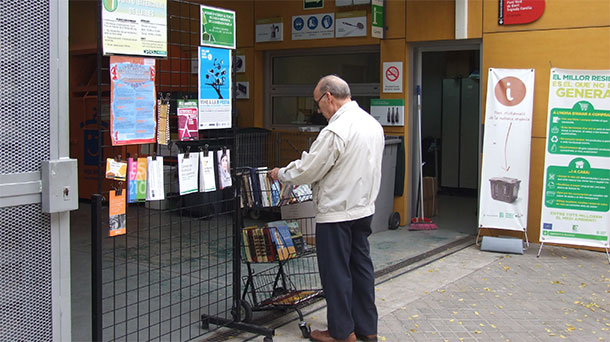- Home
- / Services
- / The city works
- / Maintenance of Public Areas
- / Waste management and cleaning services
- / Zero Waste
- / Prevention
- / The Plan
The Plan
In the area of waste, prevention has contributed to changing perspectives concerning some resources that were considered as waste and the recognition of their potential for reuse and recycling in order to prolong their useful lives. It has even started to be seen as a business opportunity by certain sectors of the commerce and business worlds (e.g. second-hand markets)
In 2011, with the aim of including prevention in Barcelona's waste-management model, in line with the most recent European strategies, Barcelona City Council developed its 2012-2020 Waste Management Plan, unanimously approved by the Urban Habitat Commission.
The actions carried out as part of the plan, some of which continue with measures employed in previous years, have been especially focused on certain fractions, including organic matter and food, lightweight packaging, bulky waste and clothing, with very satisfactory results that reveal the future potential of prevention in reducing the volume of municipal waste.
Currently, Barcelona City Council's environmental policies are aligned with the zero waste strategy. In general, the zero waste philosophy is based on the challenge of progressively reducing the generation of waste until everything is reintroduced into the production cycle or natural systems.
The Catalan zero waste strategy is a civil initiative that promotes a change in our country's production and consumption model, with the aim of closing material and energy cycles. It is a way of fostering strategies that avoid waste generation, rejecting final treatments (rubbish dumps and incinerators) as viable alternatives for managing non-recoverable fractions. Although Barcelona is not a member of the Catalan zero waste strategy, it shares the objectives of the model it proposes.
The circular economy is a system-organisation philosophy inspired by living beings. It pursues a change from a linear economy (Produce, Use and Throw Away) to a circular model, just like in nature.
The development of the concept of prevention includes the zero waste strategy and the circular economy. It is based on the reduction of waste products, reuse (exchange + repair of appliances), recycling and co-responsibility.


